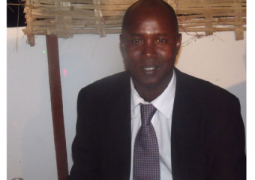For this month, the Gambian leader will be steering the affairs of the council whose mandate is to take care of peace and security issues on the continent.
The council consists of 15 member states, and each assumes the rotating chair for a period of one month.
We trust that he will replicate and even do better than what he did the last time he was chair, in December 2013.During that period, the conflicts in South Sudan and Central African Republic were rife, but Jammeh was able to make an intervention by organising a special meeting, at the level of heads of state, in Banjul.
The meeting discussed important issues regarding ways to bring peace to these countries.
Now a new wave of violent conflicts is hovering over Africa and conventional peace processes have done little to contain them.
Statistics indicate that there are about 168 militia-guerrilla groups, separatist groups, anarchic groups and religious factions involved in about 26 countries in Africa.
Current conflict hot spots on the continent include Central African Republic, where there is a civil tension; Democratic Republic of Congo, war against rebel groups; Egypt, popular uprising against the government; Libya, war against Islamist militants; Mali, war against Tuareg and Islamist militants; Nigeria, war against Islamist militants; Somalia, war against Islamist militants; Sudan, war against rebel groups, and South Sudan, with a civil tension.
The root causes of most of these conflicts are complicated and complex. But experts say salient causal origins of most of these conflicts include ethnic competition for control of the state;regional or secessionist rebellions; continuation of liberation conflicts; fundamentalist religious opposition to secular authority; warfare arising from state degeneration or state collapse; border disputes; and protracted conflict within politicised militaries.
These conflicts cause not only casualties and refugees, but also contribute vastly to the spread of disease, malnutrition and starvation, social and economic decline and moral deterioration.
An earlier report produced by Oxfam International and partners, after a study, estimated that during the past 15 years, almost US$300 billion has been squandered on armed conflicts in Africa.
These could have been used to build thousands of hospitals, schools, and roads which would positively affect millions of people.
There is need for a holistic approach to the conflicts in Africa since traditional peacemaking efforts have consistently failed to tackle them.
We hope the Gambian leader will use the opportunity of being the chair to start a process of searching for an all-inclusive African solution to the conflicts on the menu.
The issue is not just addressing the situation today and think there is peace, but anything that can degenerate to such magnitude of conflict should be considered.
We want peace in Africa!
“Peace is not absence of conflict, it is the ability to handle conflict by peaceful means.”
Ronald Reagan


